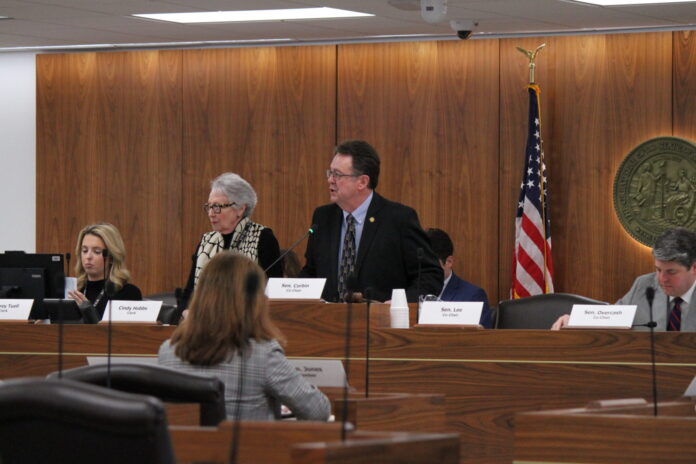In committee meetings on Tuesday and Wednesday, legislators discussed and then advanced two versions of a bill that would restrict student use of cellphones in North Carolina public schools.
The House version of the bill, House Bill 87, instructs governing bodies of public school units — school districts — to “adopt a cell phone-free education policy to eliminate or severely restrict student access to cell phones during instructional time.”
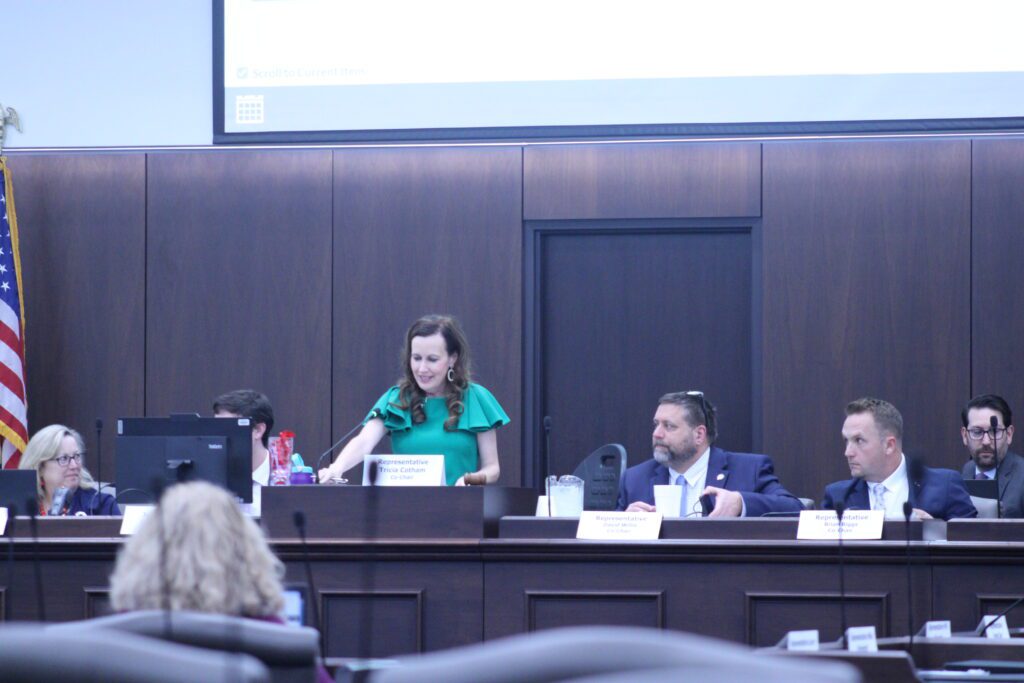
The Senate version, Senate Bill 55, is broader and would restrict the use of cellphones, tablet computers, laptop computers, paging devices, two-way radios, and gaming devices, unless approved by a teacher for educational purposes. It also outlines exceptions such as emergency situations and cases in which students require devices for their health care.
In the Tuesday afternoon House K-12 Education Committee meeting, Rep. Neal Jackson, R-Moore, who co-sponsors the bill, said he has heard positive feedback from educators and administrators in districts that already have restrictive cellphone policies.
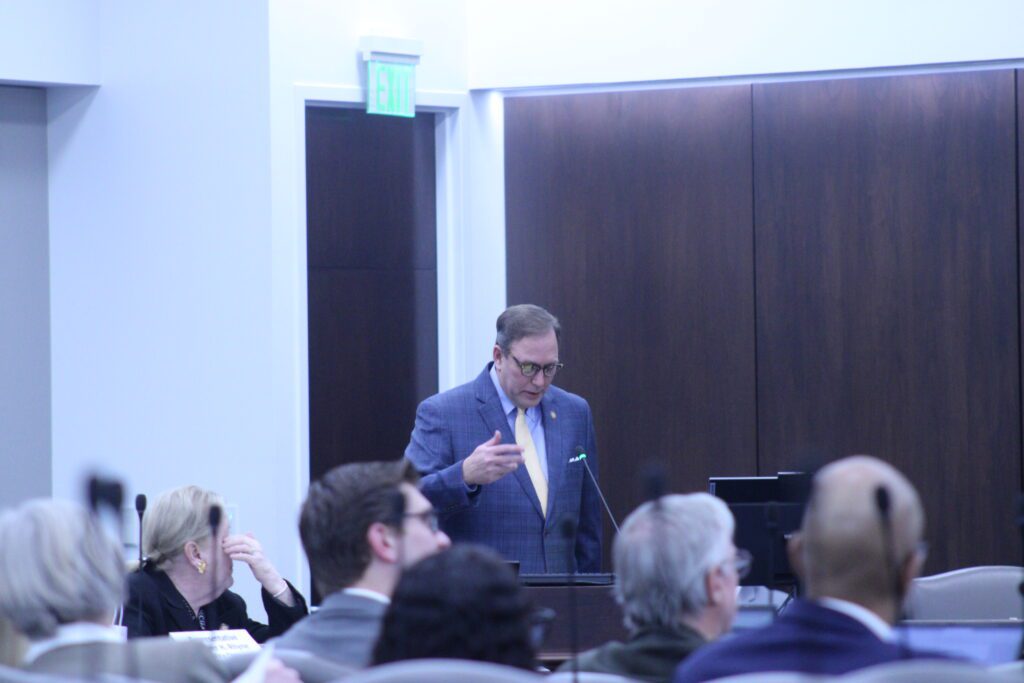

Nothing to date has prevented local education agencies from having cellphone use policies.Legislative staff that were in attendance said that the North Carolina School Boards Association found 77 out of 115 districts already have one in place.

“Everybody just raves about the program,” said Rep. David Willis, R-Union, of a cellphone use policy in Union County. “It’s less distraction in the classrooms, less behavioral issues, less people getting sent to the office. The grades are up, the morale is up, and the classroom is more manageable.”
Many in the meetings expressed their support for restricting devices in classrooms not just as legislators, but as parents with children in North Carolina schools. In the Wednesday morning Senate Education/Higher Education Committee meeting, Sen. Jay Chaudhuri, D-Wake, called the legislation “much overdue.”
Chaudhuri has previously spoken in support of a cellphone ban in meetings with the Friday Institute and the State Board of Education.
Tiffany Gladney of NC Child also voiced support for both versions of the bill. Research that the organization said they conducted themselves shows smartphones and social media can impede learning in the classroom, as well as contribute to cyberbullying and persistent feelings of sadness and loneliness, Gladney said.
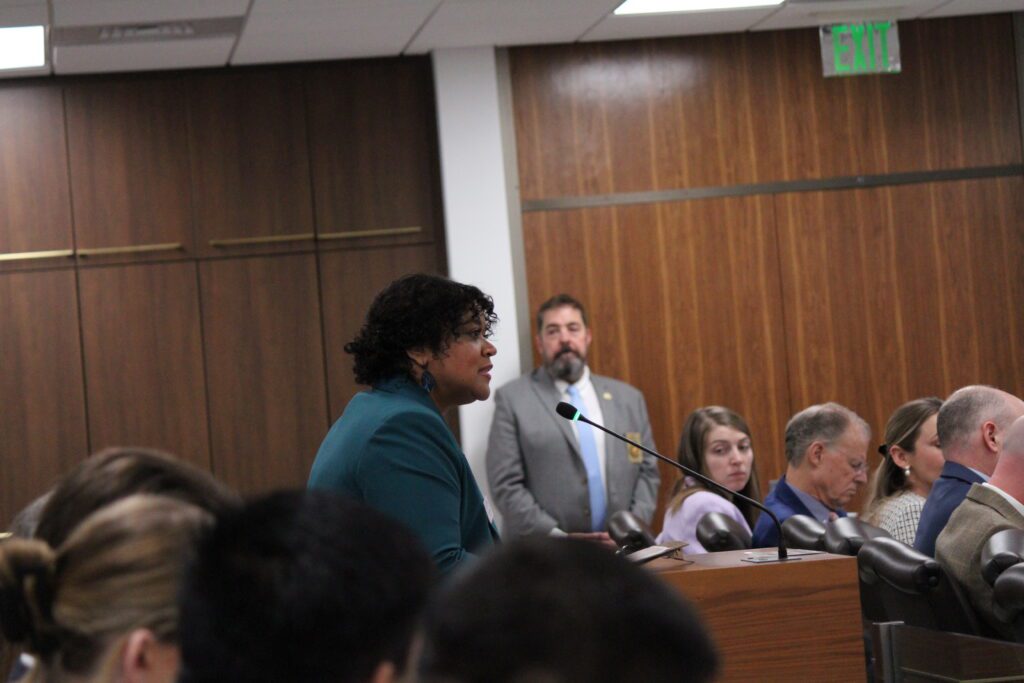
However, some legislators questioned whether cellphone use could be restricted without impeding safety. Sen. Woodson Bradley, D-Mecklenburg, recounted her children texting her updates during an active shooter situation, which later turned out to be a hoax.
“It was the most terrifying day of my life,” she said. She floated the idea of allowing students to keep cellphones on as long as they are silenced.
In the House committee meeting, Rep. Frank Iler, R-Brunswick proposed school resource officers having a direct line or “button” to contact emergency services as a solution for House members with similar concerns.
“It’s been decades since my kids were in school. But I don’t want my children calling me. I want them to follow the instructions,” Iler said.
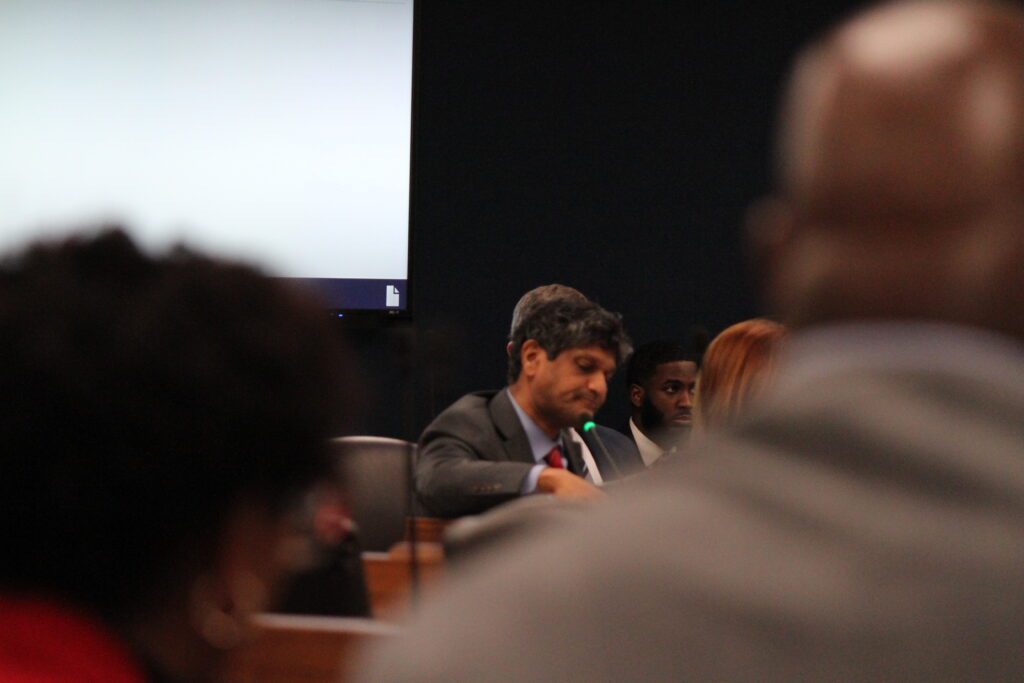
Both committees passed their respective bills forward. Looking ahead, it seems likely a device use policy will be passed, given the bipartisan support for both versions of the bills.
“I believe this isn’t a rural or urban issue, it’s not a Democrat or Republican issue,” said Chaudhuri. “It’s about getting our kids focused in the classroom and away from social media.”


